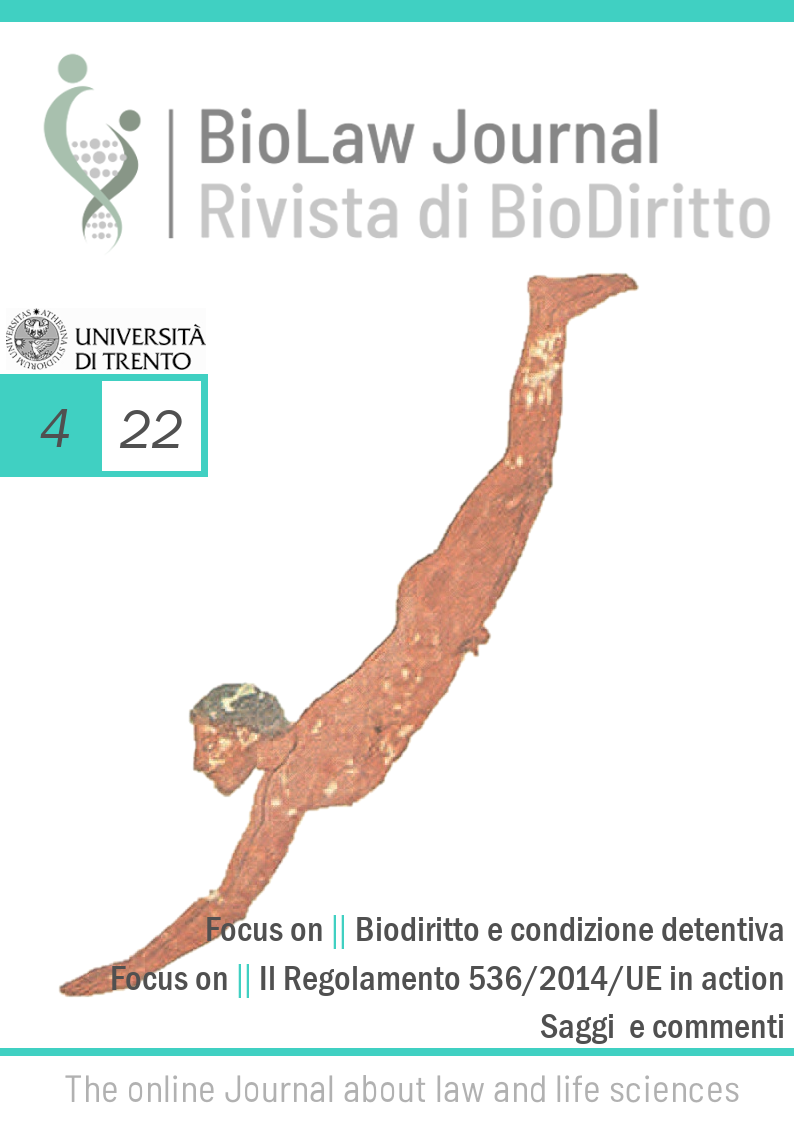After the abolition of forensic psychiatric hospitals: the remnants of the psychiatric institutionalization model and the survival of the “special” criminal system for the “insane criminals”
DOI:
https://doi.org/10.15168/2284-4503-2462Keywords:
Criminals with mental disabilities, Forensic Psychiatric Hospitals, justice systems for insane criminals, psychiatric institutionalization model, mental health community based modelAbstract
The law n. 81/2014 which abolished the forensic psychiatric hospitals has provided a new therapeutic system for the so called “insane criminals”, following a mental health community-based approach (alternative to the psychiatric institutionalization model). Nonetheless, the special criminal system for the “insane criminals” has not been changed. This system is grounded on concepts like “incapacity of acting rationally” and “social dangerousness” (as attributes of mental disorders). These ideas are rather consistent with the psychiatric institutionalization than with the community-based model promoted by the new law. The article addresses the inconsistencies that prevent the full implementation of a mental health community- based approach and suggests legislative solutions to overcome the “special” justice system for authors of criminal acts with mental disabilities.
Downloads
Published
How to Cite
Issue
Section
License

This work is licensed under a Creative Commons Attribution-NonCommercial-NoDerivatives 4.0 International License.





